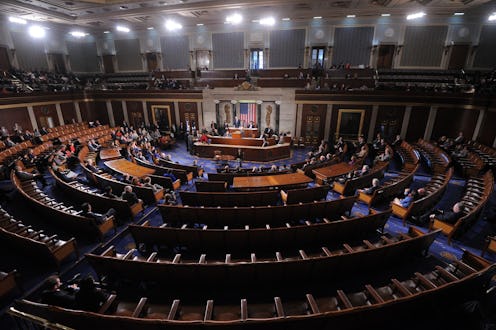News
Faithless Electors Can Be Punished
On Wednesday, Politico reported that one of Washington state's Democratic electors, Robert Satiacum Jr., is considering breaking the law and not voting for party nominee Hillary Clinton in the Electoral College should she carry the state, rather than violate his conscience. Aside from dredging up the endless hand-wringing over the wildly antiquated Electoral College, the report raises a new question: Can faithless electors be punished for not voting correctly? As with so many aspects of the Electoral College, the answer is simultaneously clear cut and kind of complicated.
First, it depends on which state the elector is from. If they hail from one of the 21 states which don’t have “faithless elector laws," then they can do whatever they want, as far as the law is concerned. In August, Georgia GOP elector Baoky Vu made a similar threat against his party’s nominee, Donald Trump. Georgia happens to be one of the lucky 21, and so should Vu carry out his promise, he wouldn’t face any legal trouble.
But Washington does have a law governing faithless electors, and the act carries a $1,000 fine. While that might serve to deter, say, a struggling writer like myself, Satiacum has claimed that the penalty wouldn’t stop him from not voting for Clinton. That’s assuming the penalty is enforced. Even though there have been 157 faithless electors in U.S. history, none have been prosecuted, according to the National Archives.
It’s important to note that there are no instances of faithless electors ever swinging a presidential election. In 1836, the 23 Virginian electors didn’t support Martin Van Buren’s running mate, Richard M. Johnson, after it was discovered that Johnson lived and had children with an African American woman. The vice presidential election was thrown to the Senate, where Johnson was selected as VP.
Interestingly, though Washington's fine appears to be among the biggest financial penalties, other states go further to force electors to follow voters’ wishes. Many states mention criminal prosecution in their state laws, but New Mexico states outright that acting as a faithless elector is a fourth-degree felony, which can carry a sentence of up to 18 months in prison and a $5,000 fine.
A few other states appear less concerned with punishment and more concerned with protecting the integrity of their vote. Michigan, North Carolina, and South Carolina punish their faithless electors by canceling their vote and replacing them in the College, effectively neutralizing their rebellion.
In the end, most observers agree that the likelihood that a single defecting elector will do much to change the math is pretty slim, especially as Clinton continues to pull away from Trump in both polls and the Electoral College math. Nevertheless, it’s important to keep an eye on these mysterious electors who, in the end, are the people who actually elect the president.
